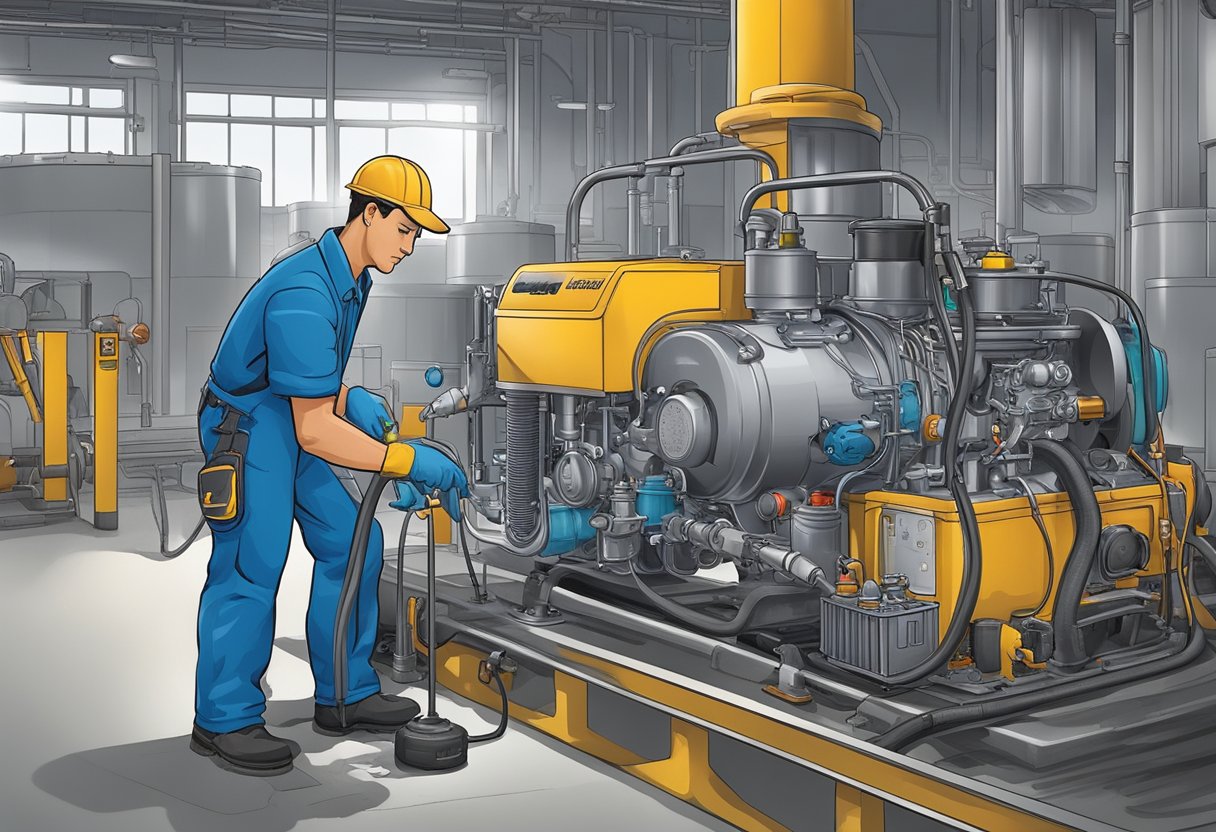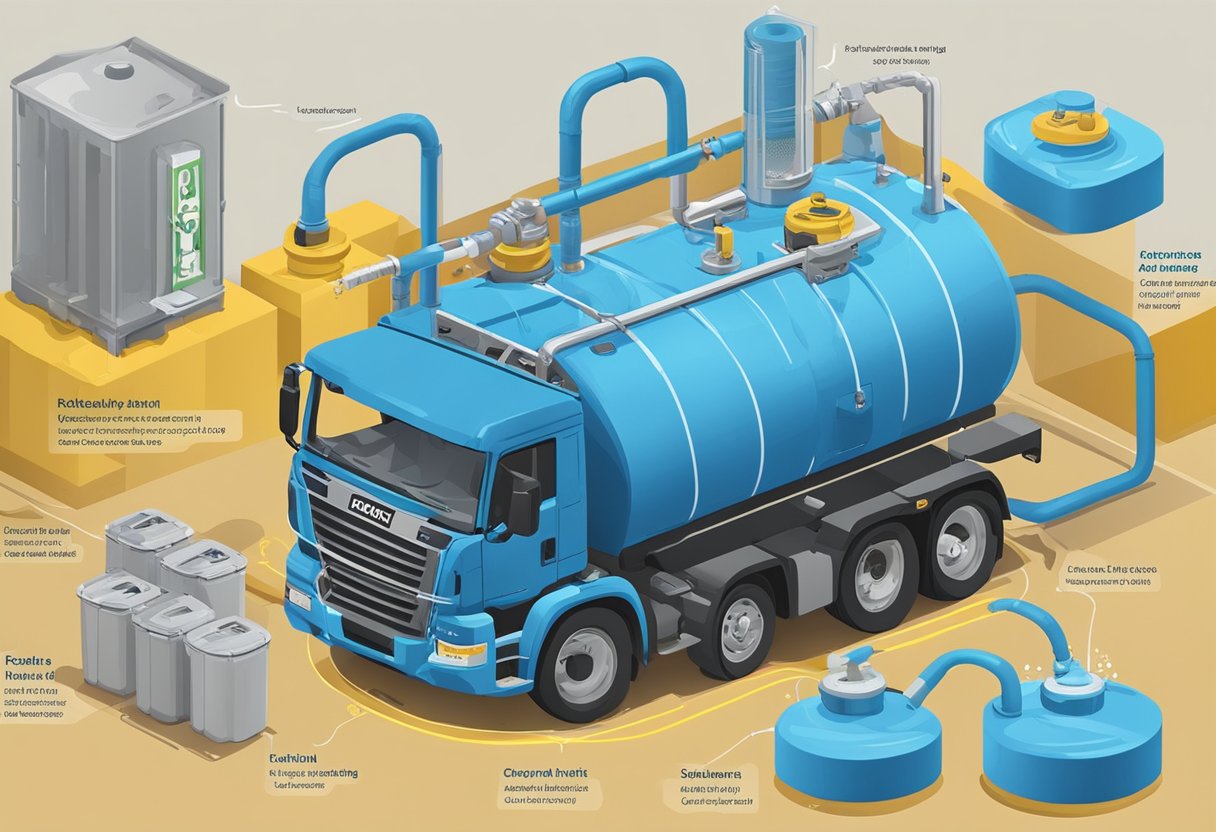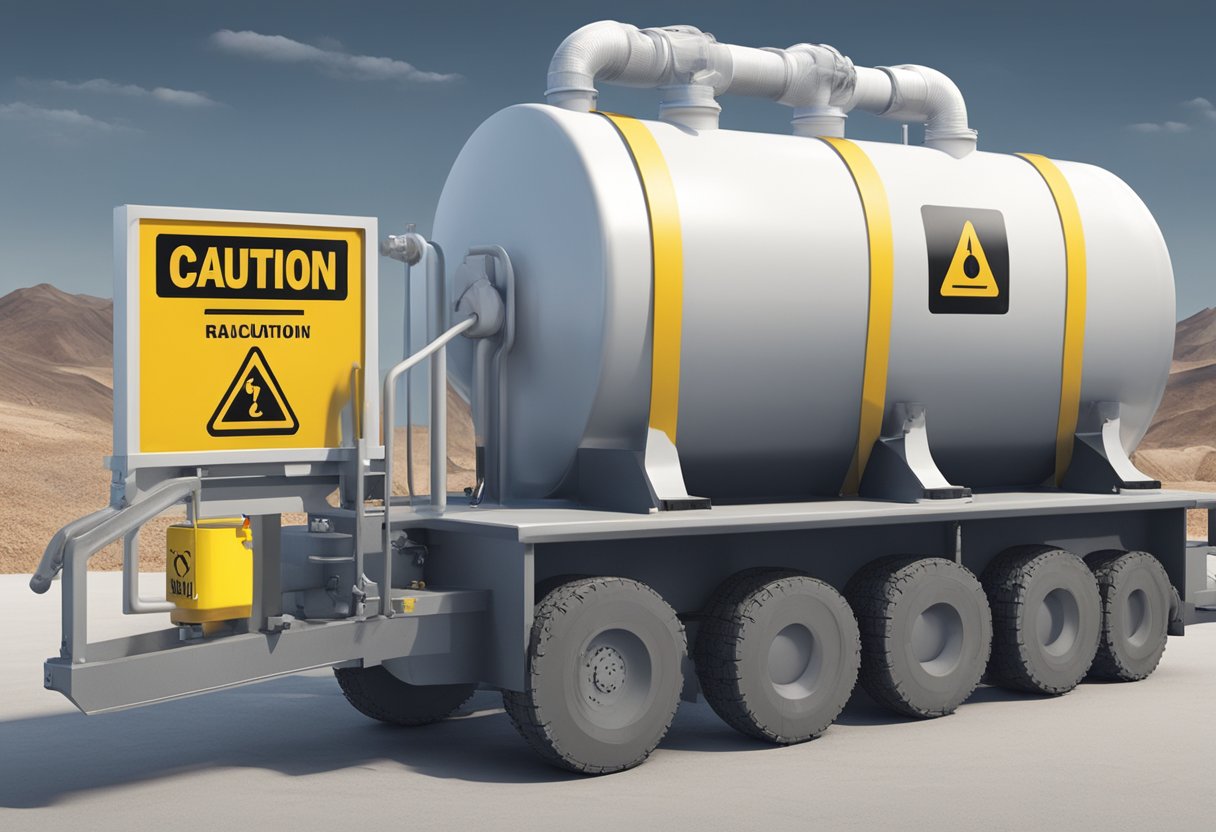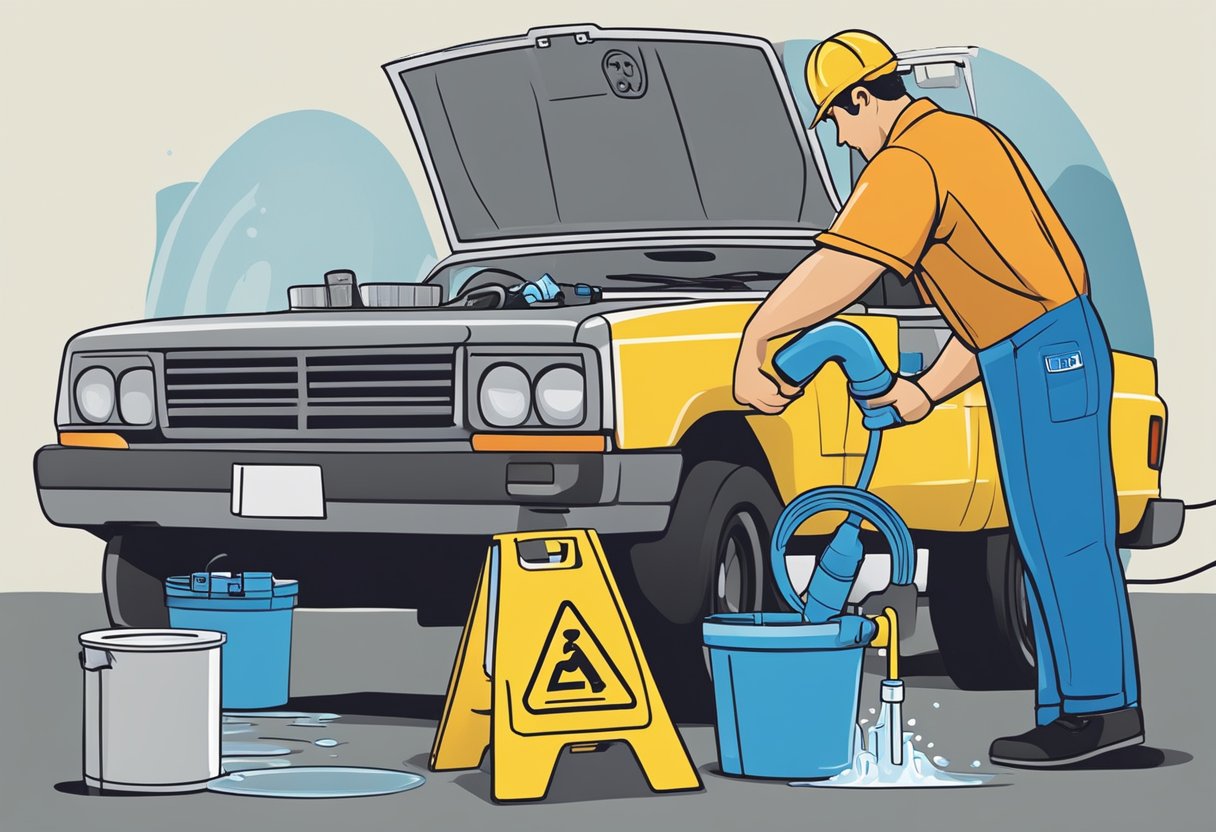When it comes to maintaining your vehicle’s engine, the coolant system is an essential component.
It helps regulate the temperature of the engine and prevents overheating, which can cause severe damage.
However, if you’re low on coolant, you may be tempted to top off the coolant tank with water.
While adding water to the coolant tank may seem like a quick fix, it’s not always the best solution.
In this article, we’ll explore the risks of using water in the coolant tank and alternative options.
Using water in the coolant tank may be a tempting solution, especially if you’re on the road and don’t have access to coolant.
However, using water instead of coolant can cause several issues.
Water doesn’t have the same anti-corrosive properties as coolant, which can lead to rust and corrosion in the engine.
Additionally, water has a lower boiling point than coolant, which means it’s more likely to boil and evaporate at high temperatures.
This can cause the engine to overheat and potentially cause severe damage.
Fortunately, there are alternative options to using water in the coolant tank.
You can purchase pre-mixed coolant from your local auto parts store or dealership.
These coolants are specifically designed for your vehicle and will provide the necessary anti-corrosive properties and temperature regulation.
Additionally, you can mix your coolant with distilled water to ensure the proper ratio and avoid any impurities that may be present in tap water.
Understanding Coolant Systems
Coolant is a crucial component of your vehicle’s cooling system.
It helps regulate the temperature of the engine by absorbing the heat generated during combustion and transferring it to the radiator, where it is dissipated.
Purpose of Coolant in Vehicles
The primary purpose of coolant in vehicles is to prevent overheating of the engine.
It also helps protect the engine from corrosion and rust, prevents the formation of mineral deposits, and lubricates the water pump.
Composition of Standard Coolants
Standard coolants are usually a mixture of water and ethylene glycol or propylene glycol.
They also contain additives such as corrosion inhibitors, anti-foaming agents, and lubricants.
The exact composition of the coolant can vary depending on the manufacturer and the intended use.
It is important to use the correct type of coolant for your vehicle, as different types of engines require different formulations of coolant.
Using the wrong type of coolant can lead to damage to the engine and other components of the cooling system.
While water can be used in the coolant tank in an emergency situation, it is not recommended as a long-term solution.
Water does not have the same properties as coolant and can lead to corrosion and mineral deposits in the cooling system.
In summary, understanding the purpose and composition of coolant in vehicles is essential for maintaining the health of your engine.
Always use the correct type of coolant for your vehicle and avoid using water as a long-term solution in the coolant tank.
Can Water Be Used as a Coolant?
Using water as a coolant is a common misconception among car owners.
While water is a readily available and inexpensive coolant, it is not recommended for use in the coolant tank.
In this section, we will discuss the risks of using water as a coolant and alternatives that can be used.
Short-Term Emergency Use
In the case of an emergency, water can be used as a temporary coolant until a proper coolant is obtained.
However, it should be noted that water has a lower boiling point than coolant, which can lead to overheating of the engine.
Additionally, water does not have the same anti-corrosion properties as coolant, which can lead to rust formation in the engine.
Long-Term Implications
Using water as a long-term coolant can cause serious damage to the engine.
Water does not have the same lubricating properties as coolant, which can lead to increased wear and tear on the engine components.
Additionally, water does not have the same anti-freeze properties as coolant, which can cause the coolant to freeze in colder temperatures, leading to engine damage.
Alternatives to using water as a coolant include pre-mixed coolant, which can be purchased at any auto parts store.
Pre-mixed coolant has the same anti-corrosion and anti-freeze properties as traditional coolant, but does not require mixing with water.
Another alternative is to use a coolant additive, which can be added to water to increase its anti-corrosion and anti-freeze properties.
In conclusion, while water may seem like a quick and easy solution for a low coolant level, it is not recommended for use in the coolant tank.
The risks of using water as a coolant outweigh the benefits, and alternatives such as pre-mixed coolant or coolant additives should be used instead.
Can Water in the Coolant Tank Cause Similar Risks as Water in Engine Oil?
Water in the coolant tank can lead to the same risks as water in engine oil. It can cause corrosion, overheating, and damage to engine components. To avoid the risks of water in oil, it’s important to regularly check and maintain the coolant levels and to address any leaks promptly.
Risks of Using Water in the Coolant Tank
Using water in the coolant tank of your vehicle may seem like a convenient and cost-effective solution, but it comes with several risks that can cause significant damage to your engine.
In this section, we will discuss the potential risks of using water in the coolant tank and why it is important to use the right coolant.
Corrosion and Scale
One of the most significant risks of using water in the coolant tank is the potential for corrosion and scale buildup.
Water contains minerals and impurities that can cause corrosion and scale buildup in the cooling system.
This can lead to clogged radiators, water pumps, and heater cores, which can cause your engine to overheat and potentially fail.
Freezing and Boiling Points
Water has a freezing point of 32°F (0°C) and a boiling point of 212°F (100°C).
This means that in cold weather, water can freeze and expand, causing damage to your engine block, radiator, and other components.
In hot weather, water can boil and evaporate, leaving your engine without proper cooling and potentially causing it to overheat.
Water Pump Erosion
Water is not as effective at lubricating the water pump as coolant is.
This can cause the water pump to wear out faster, leading to leaks and potential engine damage.
Water can also cause cavitation erosion, which can damage the water pump impeller and reduce its efficiency.
In conclusion, using water in the coolant tank may seem like a quick fix, but it can cause significant damage to your engine.
It is important to use the right coolant for your vehicle to avoid these risks and keep your engine running smoothly.
Coolant Alternatives to Water
When it comes to choosing a coolant for your engine, there are a variety of options available.
While water may be the most readily available option, it may not always be the best choice.
Here are some alternatives to water that you may want to consider.
Commercial Coolant Types
Commercial coolants are designed specifically for use in engines and offer a number of benefits over plain water.
They typically contain a mixture of water, ethylene glycol or propylene glycol, and various additives that help to prevent corrosion, lubricate the water pump, and keep the engine running smoothly.
Some of the most common types of commercial coolants include:
-
Ethylene Glycol-Based Coolants: These coolants are the most commonly used and offer excellent protection against freezing and boiling.
They are also relatively inexpensive and widely available.
However, they are toxic and can be harmful if ingested, so care must be taken when handling them.
-
Propylene Glycol-Based Coolants: These coolants are similar to ethylene glycol-based coolants but are less toxic and more environmentally friendly.
They are often used in applications where toxicity is a concern, such as in food processing plants.
-
Hybrid Organic Acid Technology (HOAT) Coolants: These coolants are designed to provide extended protection against corrosion and are often used in heavy-duty applications such as commercial trucks and buses.
Environmentally Friendly Options
If you’re looking for a more environmentally friendly option, there are a number of alternatives to traditional coolant types.
These include:
-
Waterless Coolants: Waterless coolants are designed to eliminate the need for water altogether.
They are typically made from a mixture of propylene glycol and various additives and offer excellent protection against corrosion and overheating.
They are also non-toxic and biodegradable, making them an eco-friendly choice.
-
Organic Acid Technology (OAT) Coolants: These coolants are made from a mixture of organic acids and are designed to be less harmful to the environment.
They offer excellent protection against corrosion and are often used in applications where environmental concerns are a priority.
Overall, there are a variety of coolant options available that can provide better protection for your engine than plain water.
When choosing a coolant, it’s important to consider factors such as toxicity, environmental impact, and cost to find the best option for your needs.
Best Practices for Coolant Maintenance
Regular Coolant System Checks
Regularly checking your coolant system is essential to ensure that it is functioning correctly.
You should check the coolant level at least once a month.
If the coolant level is low, add the appropriate mixture of coolant and water to the coolant tank.
Be sure to use the recommended coolant type for your vehicle.
Additionally, you should inspect the coolant system for leaks, cracks, or other damage.
Look for signs of corrosion or rust, which can indicate a problem with the cooling system.
If you notice any issues, it’s best to take your vehicle to a mechanic for further inspection.
Proper Coolant Disposal Methods
When it’s time to replace your coolant, it’s important to dispose of it properly.
Coolant is toxic and can be harmful to the environment if not disposed of correctly. Do not pour it down the drain or on the ground.
Instead, take your used coolant to a recycling center or mechanic who can properly dispose of it.
Some auto parts stores also offer coolant recycling services.
By following these best practices for coolant maintenance, you can help ensure that your vehicle’s cooling system functions correctly and avoid potential risks associated with improper coolant use and disposal.
As an Amazon Associate we earn from qualifying purchases.
















Regarding the environmental impact, I’m trying to make more eco-conscious choices with my vehicle maintenance. Could you expand on how waterless coolants compare to traditional coolants in terms of environmental benefits and their effectiveness in cooling the engine?